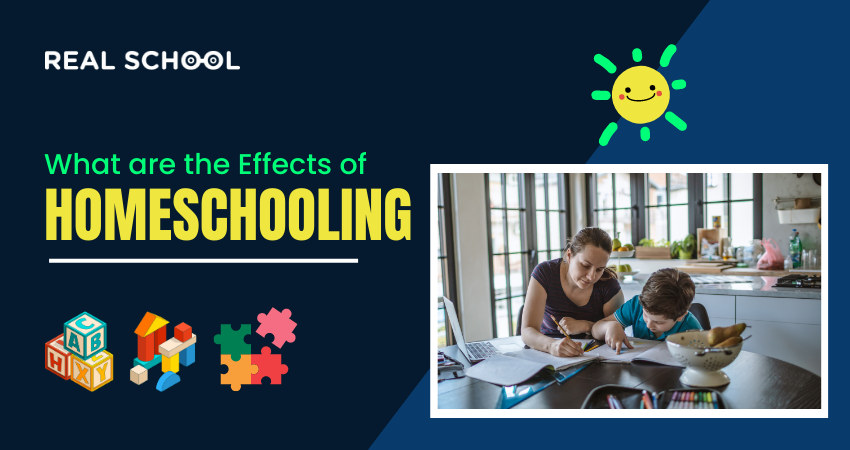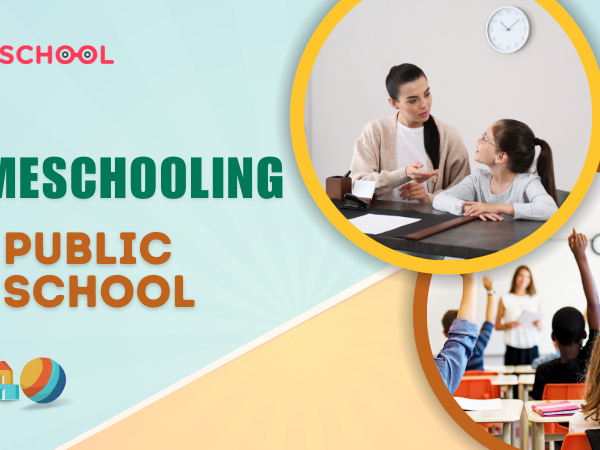Homeschooling can have a variety of effects on children and families, both positive and negative. These effects can vary depending on individual circumstances, approaches to homeschooling, and the reasons for choosing this educational path.
Here are some common positive and negative effects of homeschooling:
Positive Effects Of Homeschooling:
Individualized Learning:
Homeschooling allows for a personalized curriculum tailored to a child’s specific learning style, interests, and pace. This individualized approach can lead to a deeper understanding of subjects and a greater love for learning.
Flexible Schedule:
Homeschooling provides flexibility in terms of scheduling. Families can plan vacations, field trips, and extracurricular activities without being tied to a traditional school calendar.
Stronger Family Bonds:
Homeschooling often fosters closer relationships between parents and children. The shared learning experience can create a tight-knit family environment, as parents actively participate in their child’s education.
Freedom to Explore Interests:
Homeschooled children have more time to explore their interests and passions. They can delve into subjects that may not be covered in traditional schools and develop specialized skills.
Reduced Peer Pressure and Bullying:
Homeschooled children may experience less peer pressure and bullying, as they have fewer interactions with peers in a school setting. This can contribute to better mental and emotional well-being.
Safe Learning Environment:
Parents have more control over the safety and environment in which their children learn. Concerns about school violence or negative influences can be minimized.
Also Read: What Is Homeschooling All About
Negative Effects Of Homeschooling:
Social Isolation:
One of the most common concerns is that homeschooled children may have limited social interaction with peers. While this can be mitigated through homeschooling co-ops, extracurricular activities, and community involvement, some children may still face social challenges.
Limited Access to Resources:
Homeschooled children may have limited access to resources like specialized teachers, laboratories, and extracurricular programs that are commonly available in traditional schools.
Parental Time and Commitment:
Homeschooling requires a significant time commitment from parents or guardians. Planning lessons, teaching, and assessing progress can be demanding and may limit parents’ career or personal pursuits.
Standardized Testing and College Admissions:
Homeschooled students may face challenges in meeting standardized testing requirements for college admissions. Some colleges and universities may have additional admission requirements or expectations for homeschooled applicants.
Teaching Expertise:
Parents may not always possess the expertise required to teach advanced subjects or specialized skills, leading to potential gaps in the child’s education.
Limited Exposure to Diverse Perspectives:
Homeschooled children may have limited exposure to diverse viewpoints and backgrounds, which can impact their understanding of the world and their ability to interact with people from different backgrounds.
Legal and Regulatory Challenges:
Homeschooling is subject to various legal regulations, which can vary by state or country. Meeting these requirements and keeping up with changing regulations can be challenging for parents.
Also Read: Why Homeschooling Has Become More Popular
Conclusion
It’s important to note that the effects of homeschooling can vary widely from one family to another, and many homeschooled children go on to excel academically and socially. The decision to homeschool should be made carefully, taking into account the specific needs and circumstances of the child and the family. Additionally, seeking support from homeschooling communities and educational resources can help mitigate potential challenges and enhance the positive effects of homeschooling. Know more – The Real School







